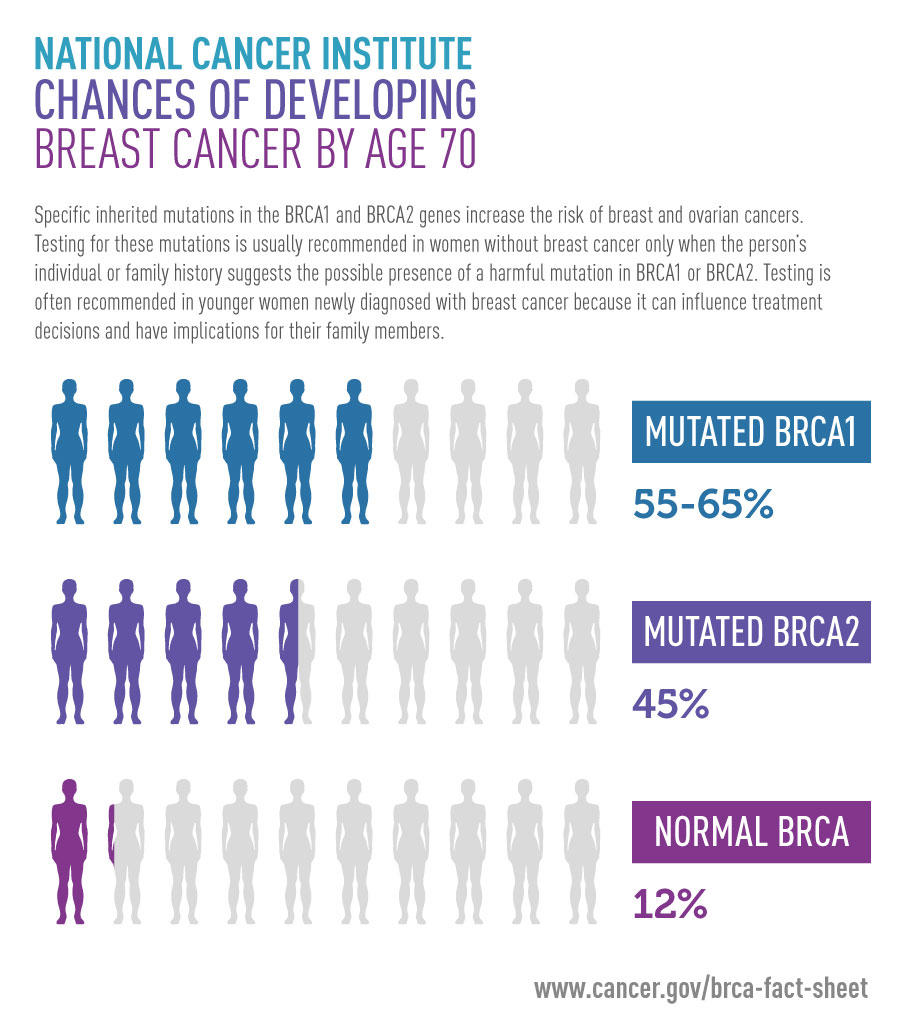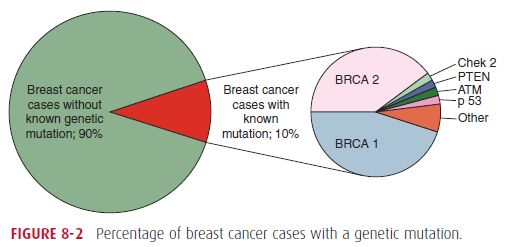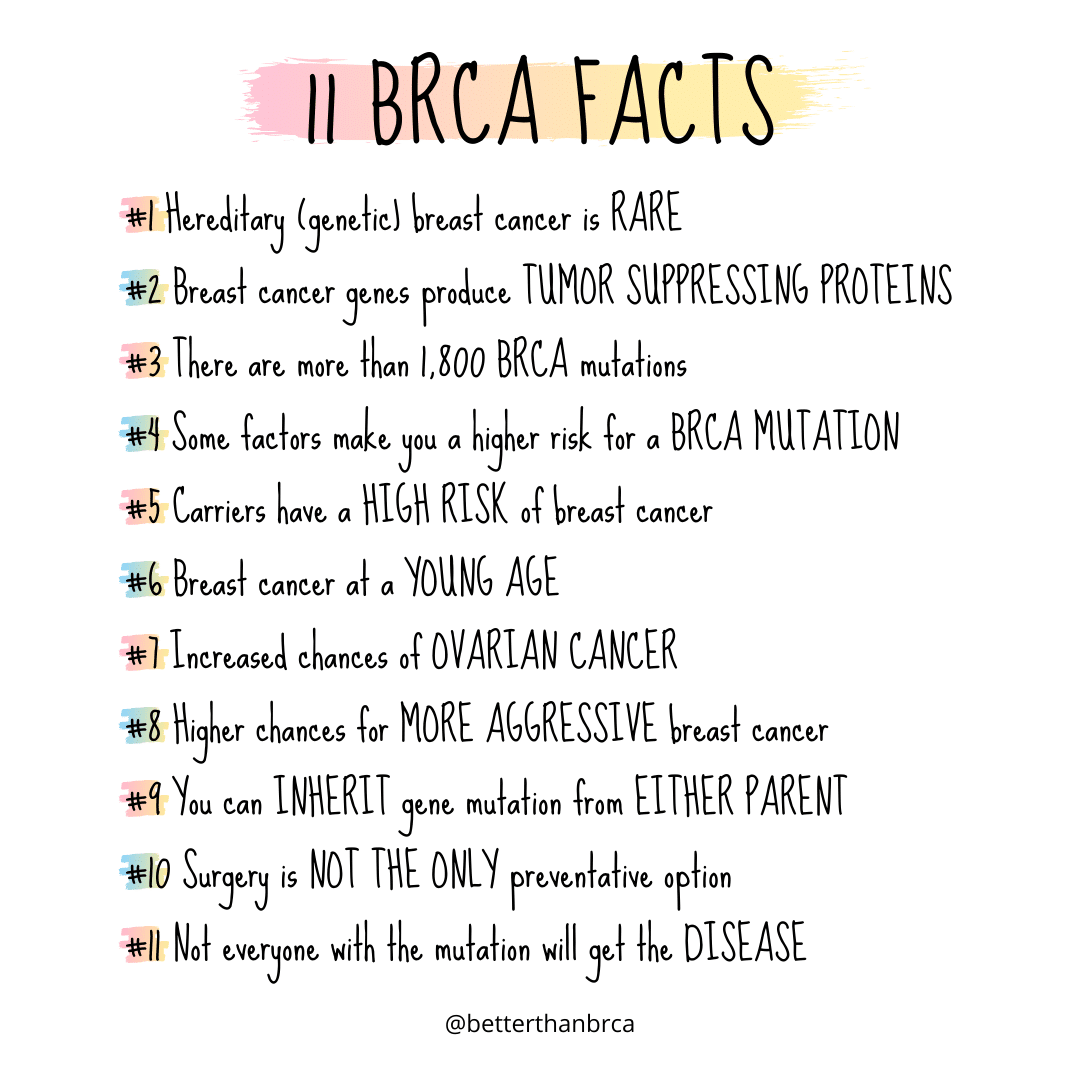When added to previous discoveries these new findings bring the total count of genetic mutations associated with an increased risk of developing breast cancer to around 180. Mistakes in these genes account for up to 10.

Recognizing Brca Gene Mutation Risk Subsequent To Breast Cancer Diagnosis In Southwestern Ontario The College Of Family Physicians Of Canada
About 12 of women in the general population will develop breast cancer sometime during their lives by contrast a recent large study estimated that about 72 of women who inherit a harmful brca1 mutation and about 69 of women who.

Breast cancer genetic mutation. The brca1 breast cancer gene one and brca2 breast cancer gene two inherited gene mutations are the most common cause of hereditary breast cancer. Mutations in the genes listed below may or may not cause an increased risk of breast cancer. The proteins produced from the brca1 and brca2 genes are involved in fixing damaged dna which helps to maintain the stability of a cells genetic information.
Not all gene mutations or genetic changes increase the risk of breast cancer to the same degree and this is an important concept for anyone considering genetic testing especially as many people have heard of the very high risk conferred by brca mutations. And the risk is higher for those with a brca gene mutation about 7 in 10 women who have it will be diagnosed with breast. Men with these mutations have an increased risk of breast cancer especially if the brca2 gene is affected and possibly of prostate cancer.
Further research is needed to tell what the increased breast cancer risk is if any. Only 5 percent to 10 percent of cancers are from inherited gene mutations and about 85 percent of women who are diagnosed with breast cancer do not have a family history of this disease. Its estimated that 55 65 of women with the brca1 mutation will develop breast cancer before age 70.
Many inherited cases of breast cancer have been associated with mutations in these three genes. Other gene mutations are sometimes found in families with a strong history of cancer. In other words these genetic variants may cause a type of breast cancer in which hormone drugs and treatments like tamoxifen or femara wont be sufficient.
Genetic mutations with uncertain breast cancer risk. About 1 in 8 women will be diagnosed with breast cancer at some point. The function of the brca and palb2 genes is to keep breast cells growing normally and prevent any cancer cell.
Men with mutations in these genes also have an increased risk of developing several forms of cancer including breast cancer pancreatic cancer prostate cancer and melanoma. However women with certain genetic mutations have a higher lifetime risk of the disease. Approximately 45 of women with a brca2 mutation will develop breast cancer by age 70.
A womans lifetime risk of developing breast andor ovarian cancer is greatly increased if she inherits a harmful mutation in brca1 or brca2.

Brca Testing In Young Cancer Patients National Cancer Institute

Breast Cancer Overview Risk Factors Screening Genetic Testing And Prevention

Inflammatory Breast Cancer May Be At High Risk Of Germline Mutation

Germline Brca Mutation And Outcome In Young Onset Breast Cancer Posh A Prospective Cohort Study The Lancet Oncology

Breast Cancer Risk Factors Epomedicine

11 Facts You Need To Know About Brca And Genetic Breast Cancer